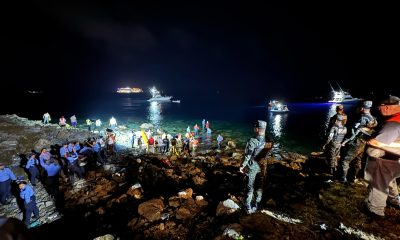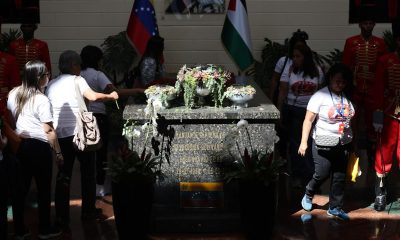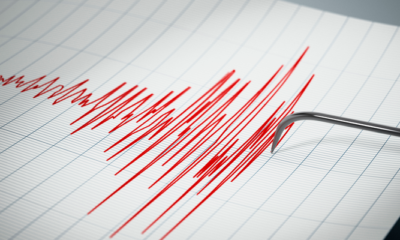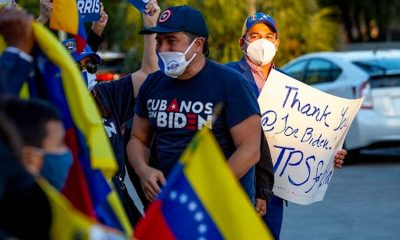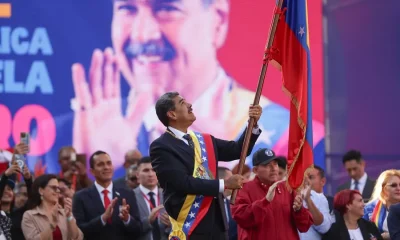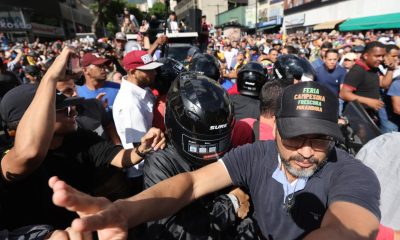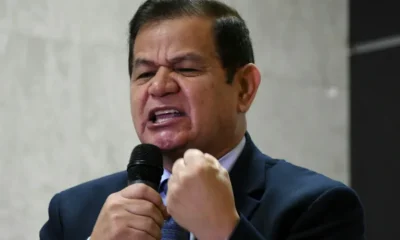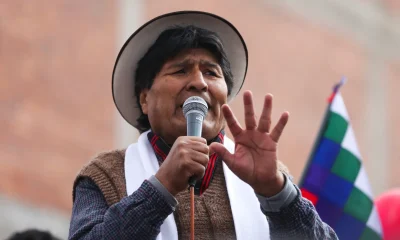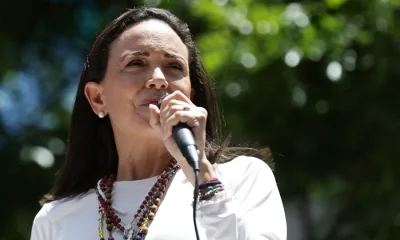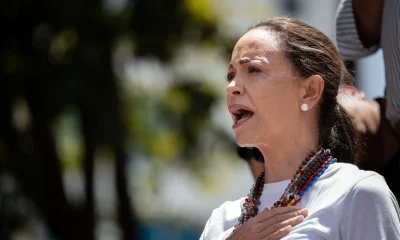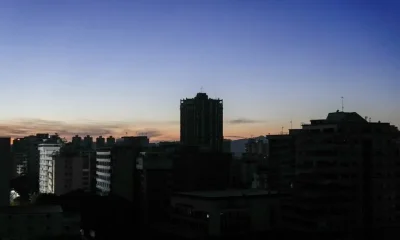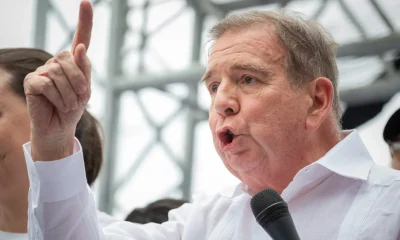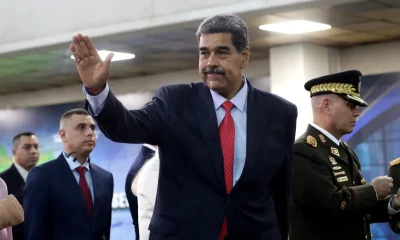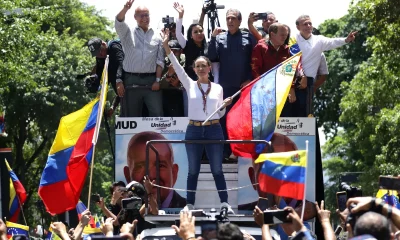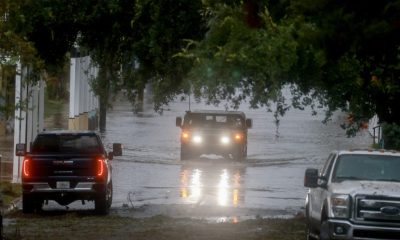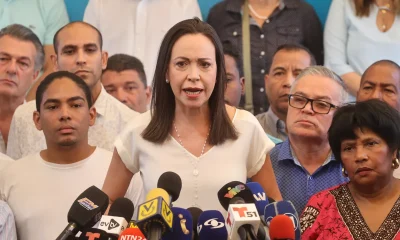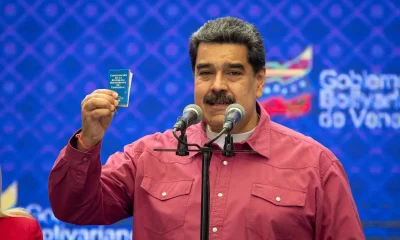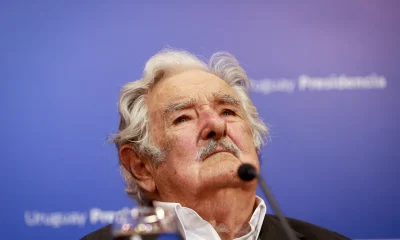International
The presidential elections of Venezuela, under the critical gaze of the international community
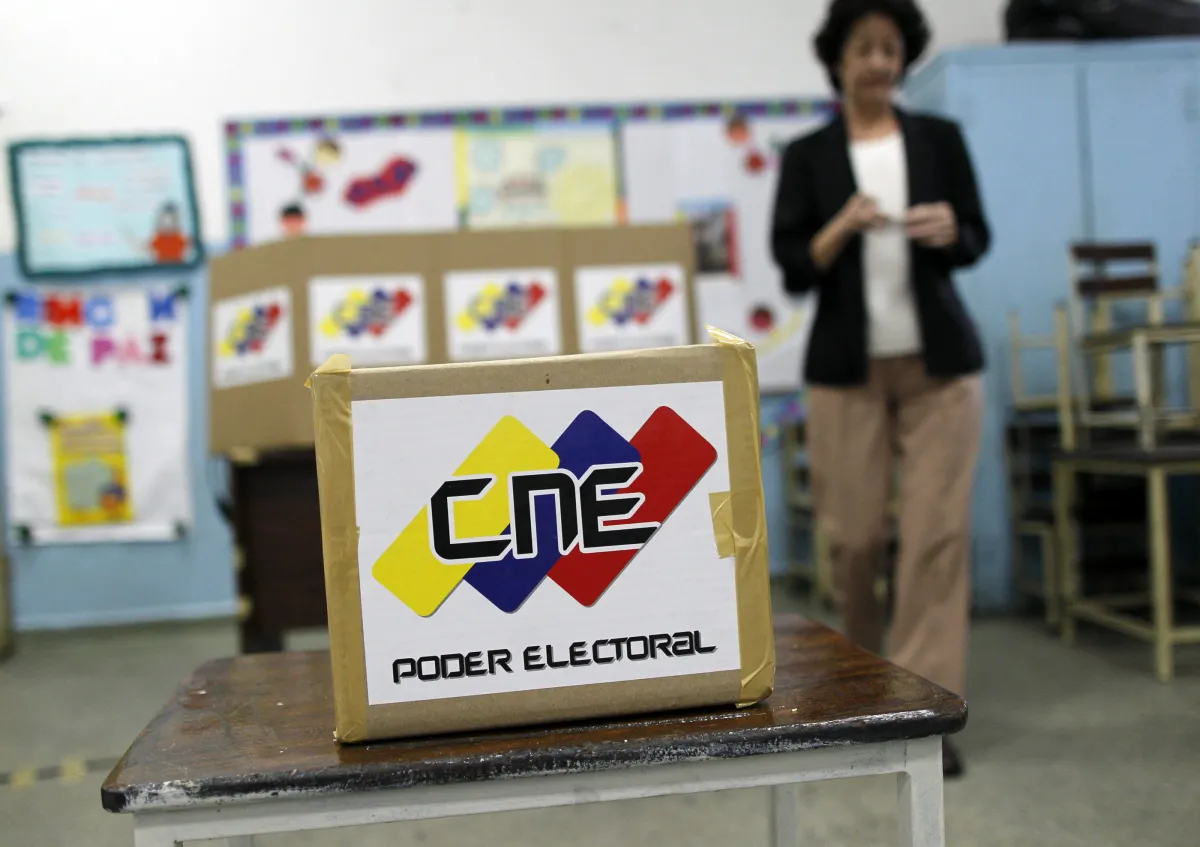
Venezuela has been in the spotlight of the international community, especially since March, when the majority opposition denounced obstacles to register its presidential candidate of July 28, Corina Yoris.
This raised a swell of criticism to which leftist leaders close to the Government were joined, such as the Colombian president, Gustavo Petro, or the Brazilian, Luiz Inácio Lula da Silva.
Petro described the disqualifications of opponents as an “anti-democratic coup,” and Lula described as “serious” and without explanation “political or legal” the impediments to register Yoris, chosen by the alliance in the face of the sanction that weighs on María Corina Machado – winner of the anti-Chavista primaries-, which prevents her from occupying public positions of popular election until 2036.
Likewise, former Uruguayan President José ‘Pepe’ Mujica recently expressed that the situation in Venezuela is “unfortunate”, where “it seems that they play democracy, but they do not play democracy.”
Meanwhile, the president of Mexico, Andrés Manuel López Obrador, in a kinder, but, above all, more ambiguous tone, asked that Venezuela be allowed to vote “in freedom,” a reaction that was well received by both the Government and the opposition.
According to internationalist Félix Arellano, these positions show an “important change” in that “Latin American left” that, to a large extent, has supported the Caribbean country with a “mechanical and uncritical solidarity.”
“These statements by Pepe Mujica, Petro and Lula have a new look at the Venezuelan situation,” Arellano said.
These questions, he said, mark “more distances” from the Government “from the left-wing parties and governments in the world.”
For the expert, the “conjuncture is not proving favorable” to the Executive, because “there is an increasingly strong crusade of the international community in favor of competitive conditions” for the presidential elections.
“At this moment, it seems that only Cuba, Nicaragua and, to some extent, Mexico, are more committed to the Venezuelan Government and, obviously, actors of world geopolitics, such as Russia and China,” he said.
Arellano believes that a new distancing would play against Venezuela, which “has shown interest in maintaining some minimum of negotiation with the international community, particularly with the United States” due to “the issue of sanctions,” whose relief allowed to expand its cooperation with energy companies around the world.
The extension of a few hours to the deadline to register candidates granted by the National Electoral Council (CNE) to the PUD, which presented to the internationalist Edmundo González Urrutia, could, according to Arellano, show that “there is concern about the position of the international community.”
In addition to Colombia and Brazil, Argentina, Uruguay, Costa Rica, Ecuador, Guatemala, Paraguay, Peru and the United States. The United States, as well as the Organization of American States (OAS) and the European Union (EU), expressed their concern about the development of the electoral process.
For Chavista deputy Roy Daza, there is “disinformation from some government spokespersons” and “personalities from the Latin American and European political world.”
According to he told EFE, “an attempt is made to manipulate, with lies and falsehoods, what is happening in Venezuela,” where the process of applying candidates “was fulfilled,” with the registration of 13 candidates and the participation of 37 parties.
In his opinion, Lula has a “biased information,” while Petro has lent himself “to a hoax.”
However, Daza is confident that this situation will not affect Venezuela’s relations with Latin American countries, which “are maintained and developed very efficiently.”
He announced that the commission will send communications to regional parliaments and the US Congress, in defense of the electoral system and in rejection of “interference.”
President Nicolás Maduro criticized that “right-wing” and “cowardly left” governments try to “intervene in Venezuela’s internal affairs.”
Meanwhile, the head of Parliament, Jorge Rodríguez, urged Petro, Lula and Mujica to put “their opinions wherever they fit.”
Arellano warned that, with these reactions, “a favorable environment is not created” and distances can be increased, which has consequences, he added, on economic relations and political support.
International
Trump urges Putin to reach peace deal
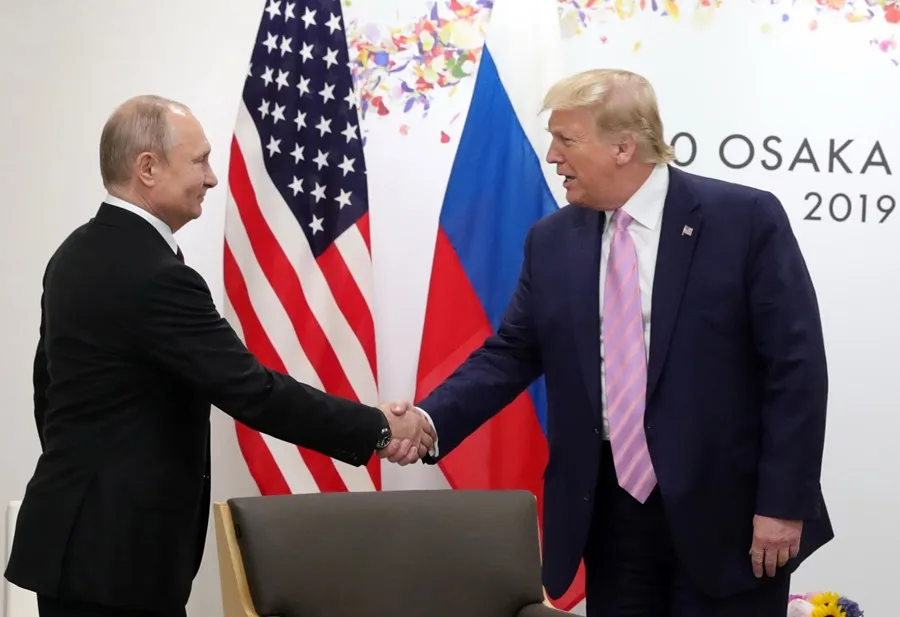
On Monday, U.S. President Donald Trump reiterated his desire for Russian President Vladimir Putin to “reach a deal” to end the war in Ukraine, while also reaffirming his willingness to impose sanctions on Russia.
“I want to see him reach an agreement to prevent Russian, Ukrainian, and other people from dying,” Trump stated during a press conference in the Oval Office at the White House.
“I think he will. I don’t want to have to impose secondary tariffs on Russian oil,” the Republican leader added, recalling that he had already taken similar measures against Venezuela by sanctioning buyers of the South American country’s crude oil.
Trump also reiterated his frustration over Ukraine’s resistance to an agreement that would allow the United States to exploit natural resources in the country—a condition he set in negotiations to end the war.
International
Deportation flight lands in Venezuela; government denies criminal gang links

A flight carrying 175 Venezuelan migrants deported from the United States arrived in Caracas on Sunday. This marks the third group to return since repatriation flights resumed a week ago, and among them is an alleged member of a criminal organization, according to Venezuelan authorities.
Unlike previous flights operated by the Venezuelan state airline Conviasa, this time, an aircraft from the U.S. airline Eastern landed at Maiquetía Airport, on the outskirts of Caracas, shortly after 2:00 p.m. with the deportees.
Interior Minister Diosdado Cabello, who welcomed the returnees at the airport, stated that the 175 repatriated individuals were coming back “after being subjected, like all Venezuelans, to persecution” and dismissed claims that they belonged to the criminal organization El Tren de Aragua.
However, Cabello confirmed that “for the first time in these flights we have been carrying out, someone of significance wanted by Venezuelan justice has arrived, and he is not from El Tren de Aragua.” Instead, he belongs to a gang operating in the state of Trujillo. The minister did not disclose the individual’s identity or provide details on where he would be taken.
International
Son of journalist José Rubén Zamora condemns father’s return to prison as “illegal”
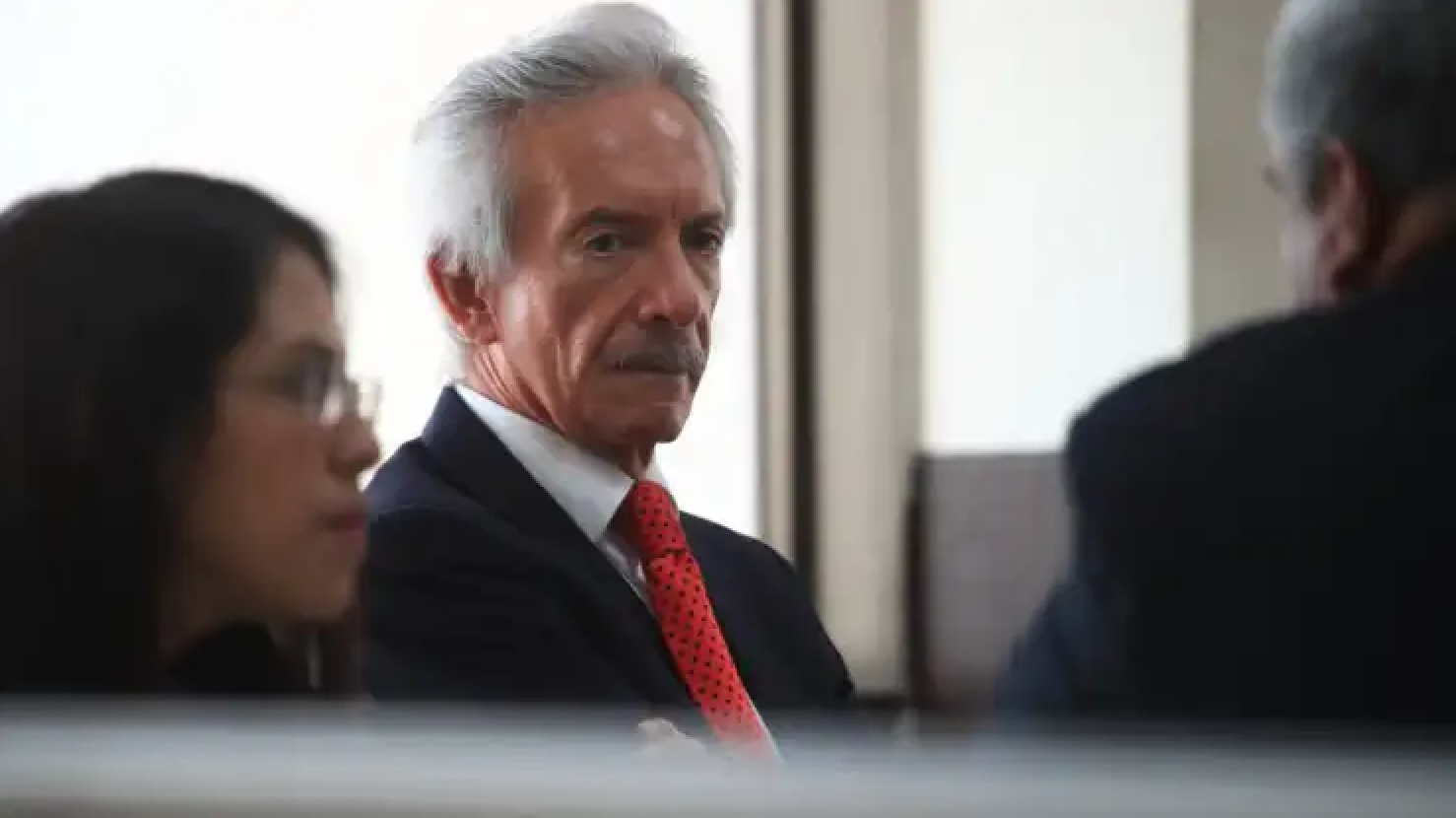
The son of renowned journalist José Rubén Zamora Marroquín, José Carlos Zamora, has denounced as “illegal” the court order that sent his father back to a Guatemalan prison on March 3, after already spending 819 days behind barsover a highly irregular money laundering case.
“My father’s return to prison was based on an arbitrary and illegal ruling. It is also alarming that the judge who had granted him house arrest received threats,” José Carlos Zamora told EFE in an interview on Saturday.
The 67-year-old journalist was sent back to prison inside the Mariscal Zavala military barracks on March 3, when Judge Erick García upheld a Court of Appeals ruling that overturned the house arrest granted to him in October. Zamora had already spent 819 days in prison over an alleged money laundering case.
His son condemned the situation as “unacceptable”, stating that the judge handling the case “cannot do his job in accordance with the law due to threats against his life.”
-

 International4 days ago
International4 days agoSon of journalist José Rubén Zamora condemns father’s return to prison as “illegal”
-

 International4 days ago
International4 days agoMiyazaki’s style goes viral with AI but at what cost?
-

 Central America2 days ago
Central America2 days agoU.S. Homeland Security Secretary urges Mexico to strengthen Guatemala border
-

 International2 days ago
International2 days agoTrump urges Putin to reach peace deal
-

 Central America3 days ago
Central America3 days agoPanama police clarifies that Interpol alert for Martinelli is still pending
-

 International3 days ago
International3 days agoDeportation flight lands in Venezuela; government denies criminal gang links
-

 Central America2 days ago
Central America2 days agoPanama grants Martinelli 72-hour extension to travel to Nicaragua
-
Central America5 days ago
Nicaragua revokes legal status of 10 more NGOs, bringing total to over 5,600














